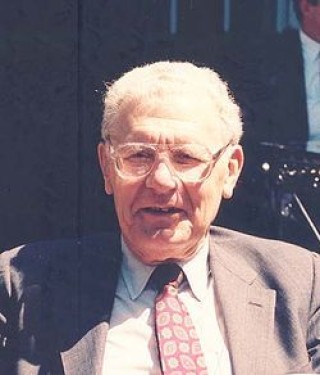Russell Ackoff was an important early proponent of the field of operations research, and remained a tireless advocate for an expansive vision of what the field could be. Ackoff was raised in Philadelphia during the Great Depression. He enrolled at the University of Pennsylvania in 1937 and graduated with a bachelor’s degree in architecture. His graduate studies in philosophy were interrupted by the Second World War, during which he served in the Fourth Armored Division prior to moving on to Officer Candidate School. Afterward, Ackoff returned to Penn and resumed his study of philosophy under C. West Churchman. Churchman and Ackoff were both adherents to the “experimentalism” of the philosopher Edgar A. Singer, Jr., a doctrine dedicated to identifying proper scientific procedure. In the immediate postwar years Churchman and Ackoff worked to bring experimentalism into practice by establishing “institutes of experimental method.” Churchman and Ackoff moved to Wayne State University in Detroit in 1947, and in 1951 to the Case Institute of Technology in Cleveland, now part of Case Western Reserve University. There they wedded their philosophical vision to the new field of operations research, and created one of the first academic programs dedicated to the subject. Ackoff was a founding member of the Operations Research Society of America (ORSA), and served the organization as its fifth president. With Churchman and their colleague Leonard Arnoff, Ackoff was also an author of Introduction to Operations Research (1957), the field’s first textbook written as such. In 1964 Ackoff relocated the Case OR department to the Wharton School at Penn, where it merged with an existing statistics department. Throughout his time in OR, Ackoff insisted on working on practical problems of management, and maintained ongoing relationships with a number of clients, including Anheuser-Busch, which he collaborated with for decades. Ackoff resisted the confinement of his work to any particular methodology, and remained deeply concerned with problems of ethics and social responsibility. Because OR had become increasingly defined by its mathematical methdology, Ackoff became disillusioned with the subject, and turned instead to what he called Social Systems Science. In the 1970s he would sever his relationship with OR altogether, declaring the field dead.

